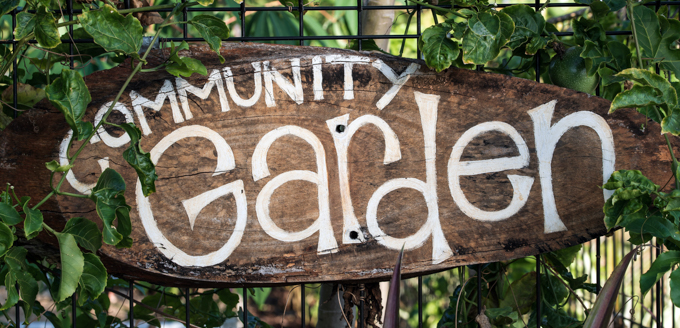
Urban Farming: Growing Your Own Produce
Urban farming is a great way to become more self-sustainable in your daily life. Growing your own food allows you to gain control of your diet, reduce your environmental footprint, and give you an opportunity to learn about the natural world. With the rise of urban farming in the city of Austin, there are many ways to get involved and begin your own sustainable journey.
One great way to get started is to visit one of Austin’s many urban farms and community gardens. From large-scale operations to small-scale projects, there are many opportunities to get your hands dirty and explore the world of urban farming. The numerous urban farms and community gardens in Austin offer something for everyone.
For those looking to get involved in a larger-scale urban farming project, there are several great options. The Sustainable Food Center’s Community Farm is a great place to start. Located in East Austin, the farm provides educational workshops, field trips, and volunteer opportunities for people of all ages. The farm also provides produce to the Austin community through their farm stand and CSA (Community Supported Agriculture) program.
For those looking for a more intimate experience, there are many smaller-scale urban farms and community gardens located throughout Austin. These projects are great for those looking to learn more about urban farming and get their hands dirty. For example, the Barton Springs Edible Garden is a great place to start. Located in Zilker Park, the garden is open to the public and offers a great learning experience for both novice and experienced gardeners.
Urban farming is a great way to become more self-sustainable in your daily life and connect with your local community. With so many options available in Austin, there is something for everyone. Whether you’re looking to get involved in a larger-scale project, or learn more about urban farming in a smaller setting, there are plenty of options to choose from. By visiting one of the many urban farms and community gardens in Austin, you can gain valuable knowledge, get your hands dirty, and become more self-sustaining.

Exploring Community Gardens in Austin
Austin is one of the most vibrant cities in the United States, and its urban farms and community gardens are an important part of the city’s culture. Community gardens provide an opportunity for residents to come together to grow and share fresh produce, as well as learn about sustainable living. Exploring Austin’s community gardens can be a great way to get to know the city and its residents.
The Sustainable Food Center is a great place to start your exploration of Austin’s community gardens. It is a non-profit organization that works to expand access to local, healthy, and affordable food for all. The center not only offers educational programs to teach people about sustainable growing practices, but also has several community gardens and farms located around the city. These gardens are open to the public and provide a great opportunity to learn about urban farming, as well as meet other local gardeners.
Urban Roots is another great organization to check out if you’re interested in exploring Austin’s community gardens. This organization works with local youth to engage them in food justice, urban agriculture, and environmental stewardship. Through its programming, Urban Roots provides youth with the skills and knowledge to become successful in a variety of areas, including food production, urban farming, and sustainable living. The organization also provides tours of its community gardens, allowing visitors to get an up-close look at the gardens and learn more about the organization’s mission.
The Barton Creek Farmer’s Market is another great place to explore Austin’s community gardens. This weekly farmer’s market is a great place to get fresh, locally-grown produce, as well as learn more about sustainable growing practices. The market also features a variety of educational programs that teach visitors about urban farming and sustainable living. Additionally, the market hosts a variety of hands-on activities such as cooking classes, composting workshops, and seed starting demonstrations.
The Green Corn Project is another great organization to check out if you’re interested in exploring Austin’s community gardens. This organization works to create a sustainable and equitable food system in the city by providing access to healthy, local food. The project works to engage residents in urban farming and to provide educational opportunities to promote healthy eating and sustainable living. The organization also hosts a variety of events throughout the year, including garden tours, cooking classes, and other educational programs.
Exploring Austin’s community gardens can be a great way to get to know the city and its residents. There are a variety of organizations and programs that offer educational opportunities and provide access to fresh, locally-grown produce. Whether you’re looking to learn more about sustainable living or just enjoy the beauty of nature, exploring Austin’s community gardens is a great way to experience the city.
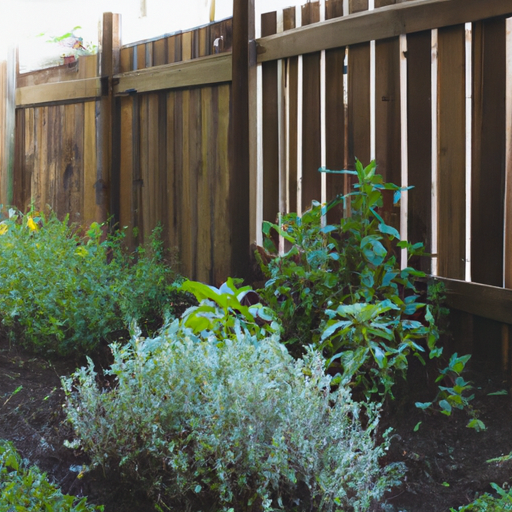
Living Sustainably in Austin: An Introduction
If you are looking for a way to live sustainably and become more connected to your local community in Austin, Texas, urban farms and community gardens are a great place to start. Urban farming is an innovative way to bring food production closer to home and help reduce the city’s reliance on imported food. Community gardens provide a space for people to grow their own food and enjoy the benefits of gardening and food production in the heart of the city.
Austin is one of the most rapidly growing cities in the US, and its urban farms and community gardens are a great way to stay connected to the city while living a more sustainable lifestyle. From urban farms that provide fresh, local produce to community gardens that help to build connections between neighbors, Austin is one of the best cities to live sustainably in.
Urban farms and community gardens are great places to learn how to grow your own food, meet like-minded people, and get involved in your local community. From learning about composting and permaculture to participating in community events and workshops, there are so many ways to get involved in Austin’s urban farming movement.
Urban farms and community gardens in Austin come in all shapes and sizes. From small, urban plots to large-scale operations, there are plenty of options for those looking to grow their own food in the city. Some urban farms even offer educational classes and events to help people learn about sustainable agriculture and food production.
Community gardens in Austin are a great way to get to know your neighbors and build a sense of community. From potlucks and harvest festivals to community-wide workdays, these gardens are a great way to connect with the people in your local area. Many gardens also offer workshops and classes on gardening and sustainable living, which can be a great way to learn new skills and share knowledge with others.
Austin is a vibrant and diverse city with a thriving urban farming and community garden scene. Whether you are looking to learn more about sustainable living, meet new people, or just want to get your hands dirty, urban farms and community gardens in Austin provide an excellent opportunity to do all of these things. With so many options to choose from, you are sure to find something that suits your lifestyle and interests.
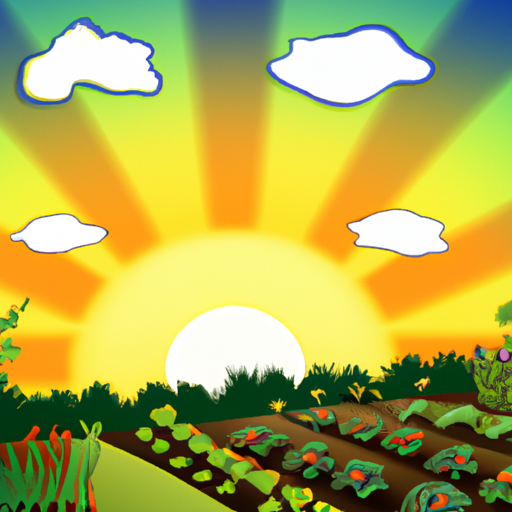
Tips for Setting-Up Your Own Urban Farm or Community Garden
The idea of setting up an urban farm or community garden in Austin is a great way to promote sustainable living. Not only does it provide fresh, locally grown produce for your family and neighbors, but it also encourages a sense of community and togetherness. Whether you’re a novice gardener or an experienced green thumb, here are some tips for setting up your own urban farm or community garden in Austin.
First, decide on the size of your garden. If you’re just starting out, focus on a small area you can easily manage. You can always expand the garden later if you want.
Second, select the right location. You’ll need to make sure the land you choose gets enough sunlight and is away from potential sources of pollution, like busy roads.
Third, choose the right plants. To make the most of your garden, select plants that are native to the Austin area. This will ensure they’re well-suited to the local climate and soil conditions.
Fourth, consider joining or starting a community garden. Community gardens are a great way to share resources, knowledge, and skills with other gardeners. Plus, it’s a great way to meet new people and make a difference in your community.
Fifth, invest in the right tools and materials. Good quality tools and materials will help you get the job done quickly and efficiently.
Sixth, create a plan. Before you start planting, make sure you have a plan in place. It should include the types of plants you plan to grow, how often you plan to water them, and what type of fertilizer you’re going to use.
Seventh, build a compost bin. Composting is a great way to add nutrients to your soil and reduce your waste.
Finally, remember to have fun! Gardening can be a great way to relax and enjoy the outdoors. Plus, you get to reap the rewards of your labor when you get to savor the delicious fruits of your labors.
Whether you’re a novice or an experienced gardener, setting up an urban farm or community garden in Austin is a great way to promote sustainability and enjoy the outdoors. With a bit of research, planning, and hard work, you can have a thriving garden in no time.
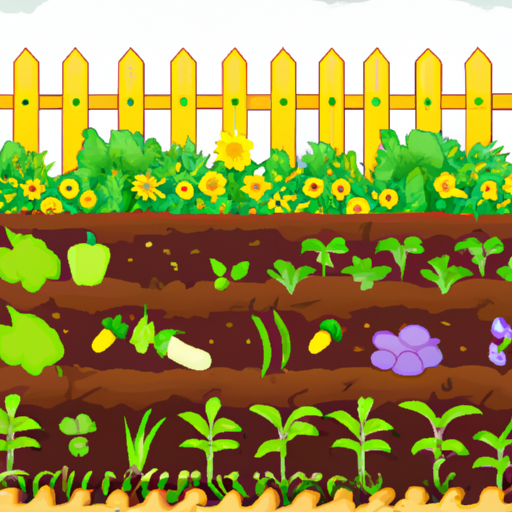
The Benefits of Growing Your Own Food
Growing your own food is one of the most rewarding and sustainable ways to live in any city, and Austin is no exception. From urban farms to community gardens, Austin offers a variety of options for those interested in producing their own food. Not only is growing your own food beneficial for the environment, but it also offers a unique set of rewards to those who partake in the activity:
- Eating Healthier: When you grow your own food, you know exactly what is in it, which means that you can make sure that you are consuming healthy, organic food. This can lead to a healthier life overall, and even prevent diseases like heart disease, stroke, and diabetes.
- Saving Money: Growing your own food can be a great way to save money in the long run. You don’t have to buy expensive organic produce from the store, and you can save money on groceries each month.
- Connecting with Nature: Gardening is a great way to connect with nature and enjoy the outdoors. When you spend time tending to your garden, you can enjoy the beauty of flowers, insects, and wildlife.
- Stress Relief: Gardening is a great way to reduce stress and anxiety, as it is a meditative activity that allows you to take a break from the hustle and bustle of everyday life.
- Learning New Skills: Growing your own food is a great way to learn new skills, as you will learn about soil composition, planting, harvesting, and preservation.
- Building Community: Growing your own food can be a great way to build community, as you can work with others in your community to plant, tend to, and harvest the food.
- Supporting Local Farmers: By growing your own food, you can support local farmers and help to reduce the amount of food that is imported from other countries.
- Promoting Sustainable Living: Growing your own food is a practical way to promote sustainable living and reduce your carbon footprint.
In Austin, there are many wonderful urban farms and community gardens that make it easy and accessible to grow your own food. Not only will you be able to enjoy the many benefits of growing your own food, but you will also be contributing to a sustainable lifestyle and helping to promote a healthier environment. So if you’re looking for a way to make a difference and enjoy healthier, organic food, consider growing your own food in Austin today.
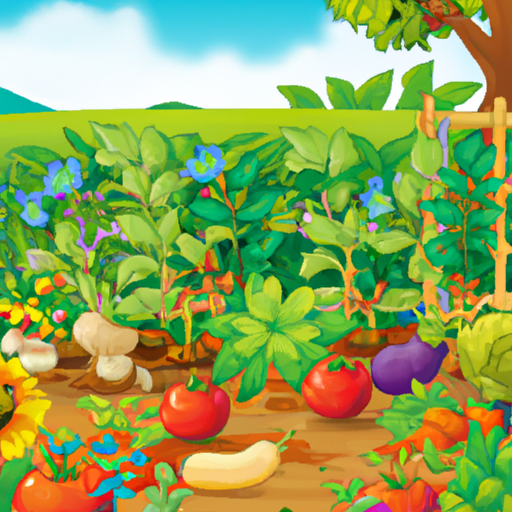
Urban Farms and Community Gardens in Austin: A Comprehensive Guide
Austin, Texas, is a bustling, vibrant city that is home to a unique local culture all its own. As the capital of the Lone Star State, it is no surprise that Austin is filled with an abundance of urban farms and community gardens that provide sustainable living options for locals and visitors alike. From the bustling urban gardens of South Austin to the rolling hills of East Austin, the city has something to offer everyone.
Urban farming and gardening can be a great way to get your hands dirty, enjoy the outdoors, and create a more sustainable lifestyle. It can also be a great way to access local, fresh produce and help to reduce your carbon footprint. In Austin, there are a variety of urban farms and community gardens offering unique experiences.
The Sustainable Food Center is a great place to start when looking for urban farms and community gardens in Austin. Located in Central Austin, the center is dedicated to promoting sustainable, local food production and providing resources to those interested in starting their own urban farm or garden. The center offers classes and workshops for those looking to get started, as well as a community garden, where members can work together to cultivate their own produce and build relationships with their neighbors.
Another great urban farm and community garden in Austin is Boggy Creek Farm. This award-winning urban farm is located on a two-acre plot in East Austin and offers a variety of produce, eggs, and other products to its members. The farm also offers educational programs and hosts regular events, such as farmers’ markets, workshops, and farm-to-table dinners.
If you’re looking for a more rural experience, there is Hausbar Farms. Located in South Austin, this urban farm produces hydroponic produce, herbs, and flowers in a greenhouse environment. The farm offers educational tours, as well as workshops and events to help visitors learn more about sustainable urban farming and gardening.
For those looking for something a bit more remote, there is the Community First! Village. This unique village is located on 40 acres of land in East Austin and provides a permanent home for the city’s homeless population. It also offers a variety of urban farms and community gardens, where visitors can learn about sustainable living and enjoy the fresh produce harvested from the gardens.
No matter where you are in Austin, you can find an urban farm or community garden that’s right for you. From the bustling urban gardens of South Austin to the rolling hills of East Austin, the city has something to offer everyone. With a variety of options to choose from, Austin is sure to have the perfect urban farm or community garden to fit your needs.
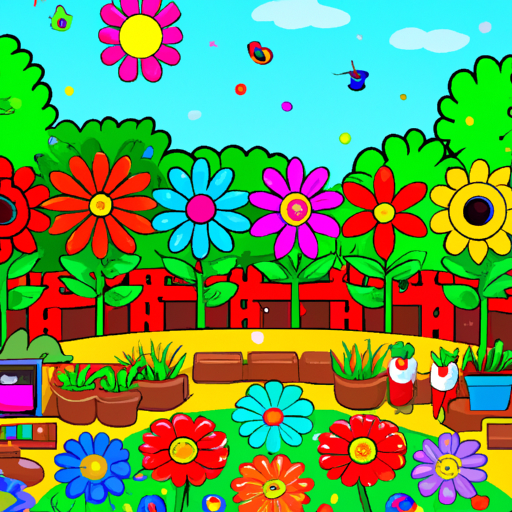
Organic Farming: What You Need to Know
Organic farming is a sustainable way to produce food for local communities that is both environmentally friendly and health-oriented. It is a great way to support local farmers and ensure that the food we eat is free of any chemicals or genetically modified organisms. Organic farming is a complex system that involves the application of specific principles and practices to ensure the health of the soil and the environment. In Austin, there are several urban farms and community gardens that are dedicated to organic farming and sustainable living.
Organic farming is all about utilizing natural elements in the production of food. It involves using natural fertilizers and compost instead of chemicals, using crop rotation and cover crops to protect and nourish the soil, and using natural insect predators to control pests. By avoiding the use of pesticides and other synthetic chemicals, organic farming helps to reduce the amount of toxins in our environment and make sure that the food we eat is of the highest quality.
When it comes to urban farming, there are several unique methods that can be used to create a healthier, more sustainable environment. Aquaponics is a type of urban farming in which fish and plants are grown together in a closed-loop system. This method uses a fraction of the water and energy compared to traditional farming, while still providing a healthy and nutrient-dense crop. It is a great way to grow food in a small space without the need for soil or traditional farming equipment.
Organic gardening is another form of sustainable urban farming. It involves using natural materials such as compost, manure, and cover crops to nourish the soil and maximize crop yields. It also strives to reduce or eliminate the use of synthetic chemicals and pesticides. Organic gardening is a great way to grow food in an urban environment while still respecting the environment and creating a healthier, more sustainable lifestyle.
Austin is home to many urban farms and community gardens that are dedicated to organic farming and sustainable living. These farms and gardens provide a great source of fresh produce for the local population and create a healthier, more sustainable environment. From aquaponics to traditional gardening, there are many unique and creative ways to grow food in Austin. Whether you are a beginner or a seasoned gardener, there are plenty of opportunities to learn about the principles of organic farming and start growing your own food in Austin.
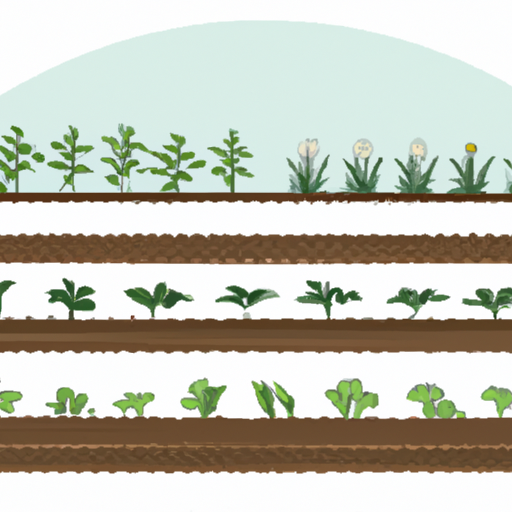
Urban Farming and Community Gardening: An Investment in the Future
Urban farming and community gardening are some of the most important investments we can make in the future of our communities. The Austin area is home to a number of innovative urban farms and community gardens that serve as an example of how we can create a more sustainable and equitable food system.
Urban farming and community gardening can be an incredibly powerful tool for social change. It has the potential to reduce food insecurity and improve access to fresh, nutritious food, create jobs, and build communities. It can also help to reduce our ecological footprint by reducing the need for energy and water-intensive industrial agriculture.
At the same time, urban farming and community gardening can help to build a vibrant and resilient local food system. By bringing food production closer to home and connecting people with the land on which their food is grown, we can create strong connections between people and the environment. This can lead to better understanding and appreciation of the land, which can be a powerful asset in times of crisis.
In Austin, a number of innovative urban farms and community gardens are helping to realize this dream. Two notable examples are Green Gate Farms and the Sustainable Food Center.
Green Gate Farms is a non-profit urban farm that provides fresh, local, and sustainably-grown produce to the Austin area. The farm operates a network of community-supported agriculture, or CSA, programs that allow people to purchase shares of local produce and support sustainable farming practices. Green Gate Farms also offers educational opportunities for children and adults, and hosts a variety of events throughout the year.
The Sustainable Food Center is a non-profit organization dedicated to increasing access to healthy, local food and educating people about food and nutrition. The center operates a number of community gardens throughout the city and provides resources for aspiring urban farmers. It also hosts a variety of events, including cooking classes, farm tours, and even a farmers market every Saturday.
Urban farming and community gardening are invaluable investments in our future. They help to create healthy communities and a more resilient local food system. In Austin, a number of urban farms and community gardens are providing valuable resources and inspiring people to reconnect with the land and their food. By supporting these organizations, we can help to create a brighter future for our communities.
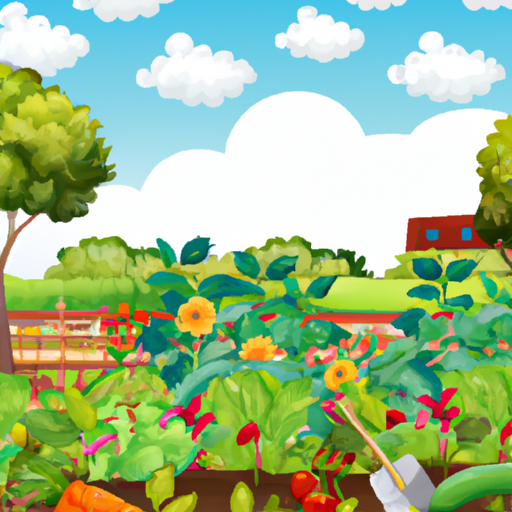
Austin’s Innovative Urban Farming Practices
Austin, Texas is a leader in the ever-growing movement towards sustainable living and urban farming. Thanks to the city’s commitment to creating innovative farming practices, Austin is now home to some of the best urban farms and community gardens in the country. These urban farms and community gardens offer a unique way for Austinites to engage in sustainable living, while also offering a variety of fresh, locally grown produce for sale.
One of the most popular urban farms in Austin is the Sustainable Food Center’s Urban Farm. Located in East Austin, the farm is a partnership between the Sustainable Food Center and local schools, universities, and organizations. The farm is open to the public, and visitors are able to purchase produce from the farm’s CSA program or volunteer with the farm’s educational initiatives. The farm grows a variety of vegetables, fruits, and herbs, and its mission is to provide education and access to fresh food for all Austin residents.
Another popular urban farm in Austin is the Green Gate Farms. Located in Southeast Austin, Green Gate is a sustainable farm that produces a variety of organic fruits, vegetables, and herbs. The farm also offers a community-supported agriculture (CSA) program, allowing members to purchase produce directly from the farm. Green Gate also offers educational programs and workshops, so visitors can learn more about the importance of sustainable farming and urban farming practices.
The Urban Roots Farm is another great urban farm in Austin. Located in East Austin, the farm is a youth development program that provides hands-on gardening and farming experiences for young people. The farm grows a variety of fruits, vegetables, and herbs, and it also offers a CSA program for members. In addition, the farm also offers workshops and educational events that teach visitors about sustainable farming and urban gardening.
Finally, the East Austin Garden Project is one of the most innovative urban farms in Austin. Located in East Austin, the farm is a partnership between the Austin Parks and Recreation Department and the Sustainable Food Center. The farm offers a variety of educational and community-building programs, and it also sells produce at its weekly farmers’ market. The farm is dedicated to promoting sustainability and urban farming, and visitors can learn more about the importance of sustainable living through its various programs and workshops.
Austin is home to some of the best urban farms and community gardens in the country, and it’s clear to see why. Each of these urban farms and community gardens offer unique ways for Austinites to engage in sustainable living, while also providing a variety of fresh, locally grown produce. Whether you’re looking to purchase produce from a CSA program, volunteer with one of the educational initiatives, or attend a workshop to learn more about urban farming, Austin’s urban farms and community gardens are sure to have something for everyone.



